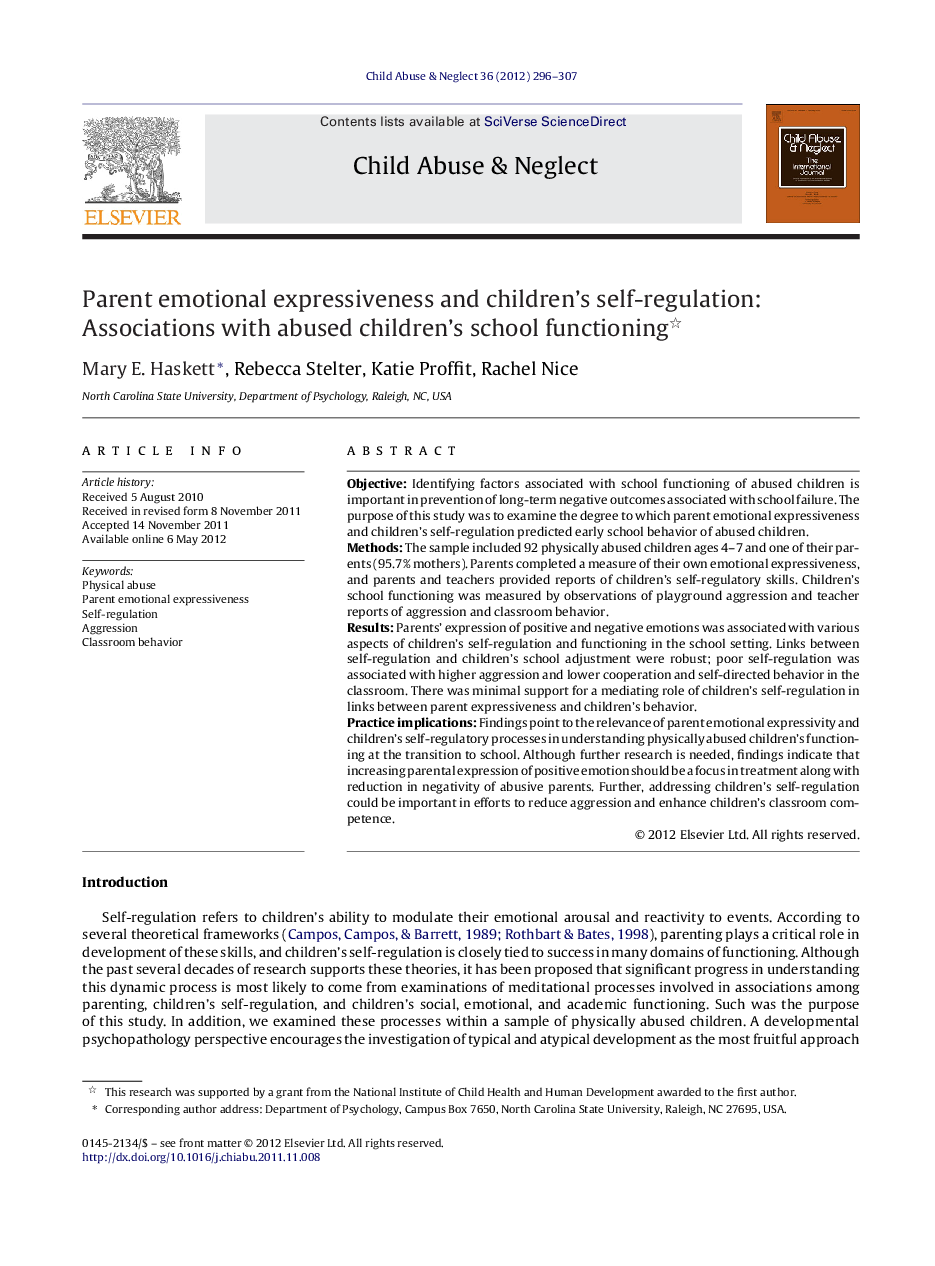| Article ID | Journal | Published Year | Pages | File Type |
|---|---|---|---|---|
| 345288 | Child Abuse & Neglect | 2012 | 12 Pages |
ObjectiveIdentifying factors associated with school functioning of abused children is important in prevention of long-term negative outcomes associated with school failure. The purpose of this study was to examine the degree to which parent emotional expressiveness and children's self-regulation predicted early school behavior of abused children.MethodsThe sample included 92 physically abused children ages 4–7 and one of their parents (95.7% mothers). Parents completed a measure of their own emotional expressiveness, and parents and teachers provided reports of children's self-regulatory skills. Children's school functioning was measured by observations of playground aggression and teacher reports of aggression and classroom behavior.ResultsParents’ expression of positive and negative emotions was associated with various aspects of children's self-regulation and functioning in the school setting. Links between self-regulation and children's school adjustment were robust; poor self-regulation was associated with higher aggression and lower cooperation and self-directed behavior in the classroom. There was minimal support for a mediating role of children's self-regulation in links between parent expressiveness and children's behavior.Practice implicationsFindings point to the relevance of parent emotional expressivity and children's self-regulatory processes in understanding physically abused children's functioning at the transition to school. Although further research is needed, findings indicate that increasing parental expression of positive emotion should be a focus in treatment along with reduction in negativity of abusive parents. Further, addressing children's self-regulation could be important in efforts to reduce aggression and enhance children's classroom competence.
